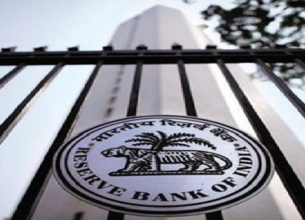IMF PROJECTS 1.9% GROWTH FOR INDIA IN 2020
16, Apr 2020

Prelims level : Economy
Mains level : GS-III Indian Economy and Issues Relating to Planning, Mobilization of Resources, Growth, Development and Employment.
Why in News?
- The COVID-19 pandemic is expected to cause a -3% change in global output in 2020, much worse than the 2008-09 financial crises, as per the International Monetary Fund’s (IMF) World Economic Outlook (WEO).
Highlight:
- A rare disaster, a coronavirus pandemic, has resulted in a tragically large number of Human Lives being lost.
- As countries implement necessary quarantines and social distancing practices to contain the pandemic, the world has been put in a Great Lockdown.
- The magnitude and speed of collapse in activity that has followed is unlike anything experienced in our lifetimes.

World Economic Outlook (WEO), April 2020:
- India’s growth is expected to dip to 1.9% in 2020 and rebound to 7.4% in 2021.
- Assuming that the pandemic fades in the second half of 2020, the world economy is projected to grow at 5.8% in 2020 as economic activity normalizes, aided by policy.
- If the pandemic does not recede in the second half of 2020, global GDP would fall an additional 3% in 2020 and if the pandemic continues into 2021, global GDP may fall by an additional 8% relative to the baseline scenario.
- The cumulative loss to global GDP over 2020 and 2021 from the pandemic crisis could be around 9 trillion dollars, greater than the economies of Japan and Germany, combined.
Emerging Asia:
- Emerging Asia is projected to be the only region that grows in 2020, at a rate of 1.0%.
- Apart from India’s modest 1.9% in 2020, Indonesia is expected to grow at 0.5%, while others in the region experience contractions.
Factors of Economic Impact of the Disease:
- The economic impact of the disease depends on a number of factors and their unpredictable interaction, including the pandemic’s pathway, the intensity and effectiveness of containment efforts, supply chain disruptions, spending pattern changes, behavioural changes (for example around people visiting shopping malls and public transport use), significant tightening of global financial market conditions and so forth.
Way Forward:
- The IMF called on policymakers to make targeted fiscal, monetary and financial sector interventions to support impacted households and businesses.
- Fiscal measures should be two-fold, cushioning the impact on the most-exposed households and businesses, and reducing firm closures, i.e., preserving economic relationships.
- Fiscal support will need scaling up, if activity does not pick up sufficiently once restrictions are lifted or if economic activity stoppages are persistent.
- Monetary stimulus by large central banks and liquidity facilities to reduce systemic stress would be required to limit the shock, positioning the economy for a better recovery.
- Further Strong multilateral cooperation is essential to overcome the effects of the pandemic, including to help financially constrained countries facing twin health and funding shocks, and for channelling aid to countries with weak healthcare systems.
















